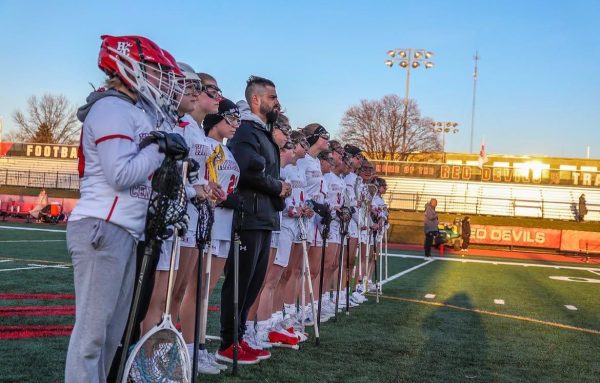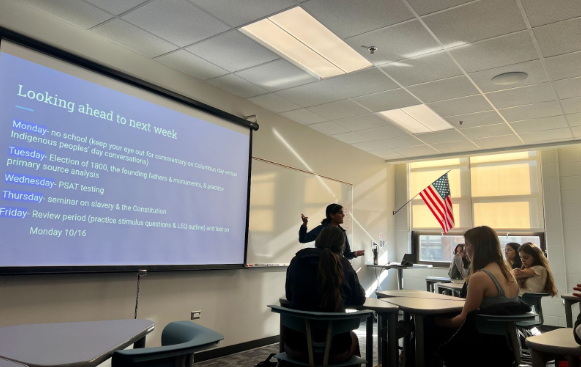Course considerations
In January 2018, students and incoming freshmen began to register for classes for the 2018-2019 school year. While the school offers many selections, students also considered course difficulty when registering.
The school offers classes at general, foundation, regular, honors, and AP levels. Class difficulty increases from foundation and general classes up to honors and advanced placement classes. Freshmen placement is based on three main factors: teacher observation, grades, and MAP testing scores. MAP, Measure of Academic Progress test, is an assessment of yearly academic growth all students in the Hinsdale Township School District take. Placement for following years depends on teacher recommendations at the beginning of third quarter in January.
“I recommend 10- 20 percent in each class to change their class level each year,” said Ms. Tylk, an English One and Two Honors teacher.
Ten to 20 percent equates to two to four people in most cases. She recommends fewer sophomores for AP Language and Composition than freshmen for English Two Honors because advanced placement classes require more commitment than honors classes. AP classes are courses that move at a college level pace. Students can obtain college credit for advanced placement classes by receiving a high test score on the AP test in May.
“[Advanced Placement European History] has caused me several mental breakdowns, but I have a B now,” said Genny O’Byron, sophomore.
The amount of advanced classes correlates with pressure and classroom success.
“[Students struggle] based on their schedule as a whole. Multiple honors classes means students can’t give 100% in each class,” Ms. Tylk said.
Students who focus on one hard class instead of multiple can dedicate more of their time to that class. However, sometimes students can feel pressured to take advanced level classes such as honors or advanced placement classes. O’Byron said that she feels pressure to take hard classes like A.P European History, although this is not always the case.
“I’m not under much pressure to take hard classes. My parents don’t really care that much,” said Chloe Aquino, freshman.
Ms. Tylk said she believes students are able to manage their classes, but they are good at hiding their stress and anxiety.
“I don’t know if students are always happy,” Ms. Tylk said.
Aquino has about five hours of homework each night. She said she believes she spends an unhealthy amount of time working on homework.
“My hardest class is Earth Science Honors,” Aquino said.
According to the American Academy of Child and Adolescent Psychiatry, teenagers can manage school stress by exercising and thinking positively. Students can use these principles to be happy and healthy throughout the school year.
Registration not only includes choosing which courses to take, but the level of difficulty is another aspect to the decision.













